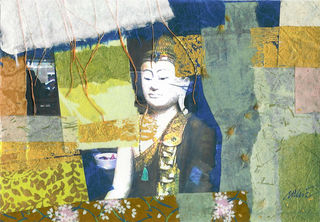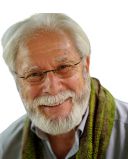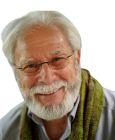Wisdom
Walking the Path of Beginner’s Mind
A lesson from my auto mechanic along the river's edge.
Posted July 31, 2019
“It is wisdom which is seeking wisdom” —Shunryu Suzuki
Mindfulness is now part of our cultural mainstream and is discussed in just about every segment of our society. Unfortunately, it is not always recognized that there is an important prerequisite to being mindful. To be mindful, you need a “beginner’s mind,” or as Shunryu Suzuki asserts in his classic Zen Mind, Beginner’s Mind (Shambhala Publications: New York, 1970): “In the beginner’s mind there are many possibilities, but in the expert’s there are few.”

The main tenet of being mindful is to pause and focus while viewing the world as a part-to-whole interdependent process. The consequence of not recognizing our mutual relationship with nature and others can and has led to stress, which is linked to a compromised immune system and other health/social threats. Vietnamese Buddhist monk Thich Nhat Hanh addresses this by urging us to find a way “to be fully alive.”
The way to start
According to Suzuki, you start by clearing your mind. This is the segue to being in the present. It is not an intellectual exercise. True understanding of this process is an actual practice, and as Suzuki believed, “If you fix your mind on the activity with some confidence, the quality of your state of mind is the activity itself.”
Robert Pirsig demonstrated this in his popular book Zen and the Art of Motorcycle Maintenance (New York: William Morrow, 1974) when he had a “satori” experience (an "aha!" moment). After his motorcycle broke down, his first reaction was to kick and scream until he centered himself with a beginner’s mind. It was then that he was able to see the solution to his problem which was right there in front of him.
Enlightenment along the river
When I was a new teen driver, one of my father’s best friends was Frank, an auto mechanic. He had a shop downstream from the Great Falls in Paterson, New Jersey. Frank had the most serene, Buddha-like smile I had ever seen. His face and hands were spotted with grease, and his chaotic, messy, overflowing shop along the river was full of practical meaning. He was a true artisan, always knowing what tools and capabilities were at his disposal.
One day I drove my 1958 candy apple Chevy Bel Air to his shop when it was making a troublesome noise. Another mechanic had given me an estimate that was far more than the value of my beloved car. Frank was more interested in seeing how I was doing.
We sat for a long, timeless while on tree stumps staring at the river’s flow. He smiled continually. When he finally looked under the hood of my car, he reached into his toolbox and tightened a few bolts, adjusted the fan belt, and said, "Enjoy yourself, no fee!" At that moment, I realized what it meant to be mindful, and much later how, as Anthropologist Gregory Bateson believed, it takes two in relationship to know oneself.
The "how" of having a beginner's mind
Having a beginner’s mind is being like my friend Frank. The artisan always starts from that liminal beginning moment and uses all his or her worldly tools. It is something that is within each of us. It is the aesthetic resources and the intuition we all have that enable us to see the whole picture.
From this perspective, we can celebrate the possibilities needed to find solutions to almost any situation, especially through mutually learning from each other. This is the recognition that all in nature is connected, not just fragments but possessing a universal light/energy.
I am convinced after all my years as a psychotherapist and homeopath that most presenting emotional and physical symptoms are a consequence of being at odds with nature. As such, we become vulnerable to the inevitable paradoxes of everyday life, those seemingly unresolvable contradictions that are mostly imposed on us by political and cultural constraints that separate significant elements of our world.
This can be seen in how disciplines such as medicine, education, and environment exist as independent entities, rather than benefiting each other. This inevitably creates those stifling damned if you do and damned if you don’t double binds. Also, we lose sight of our interconnectedness and miss the benefits of collaborating. In this regard, we tend to produce patterns of polarization within the contexts of race, gender, class, ethnicity, and diversity.
The reality is that we have choices. We can dwell in the past, be negative, and lose touch with the present moment, or choose a beginner’s mind and cherish the subtleties of a given situation. The "why" of being mindful is obvious, the "how" is more rigorous.
Beginner’s mind exercise
Inhale with a six-second breath and exhale with the same six-second count (see my previous blog, “The Ecology of Breathing”). Repeat the six-second breathing cadence for 15 breaths or about three minutes. Experience yourself within a wide-angle lens having a new peripheral perspective. Reframe any symptoms or concerns that come up and think about them through this wider perspective, not as barriers but as resources to attain understanding.
Having a beginner’s mind allows one to expand reality with wisdom. Imagine this wisdom is a tool that is accessible to you at any time. Consider how our world is full of imposed “opposites,” i.e., young and old, bad and good.
Go inside yourself and rise above the world of opposites: What differences do you perceive? In what ways do the imposed opposites of the world affect you—your job, friendships, and environment? What emotional experiences come to your mind? What physical feelings arise? How might you create differences that are meaningful to you, your family, and community?
From the above questions, how might you create your own personal framework to enhance your relationships and blend with all the interdependent facets of your world and nature itself? In what ways can having a beginner’s mind affect your life?
*The above is adapted from my recent book, A Wider Lens: How to See Your Life Differently.




